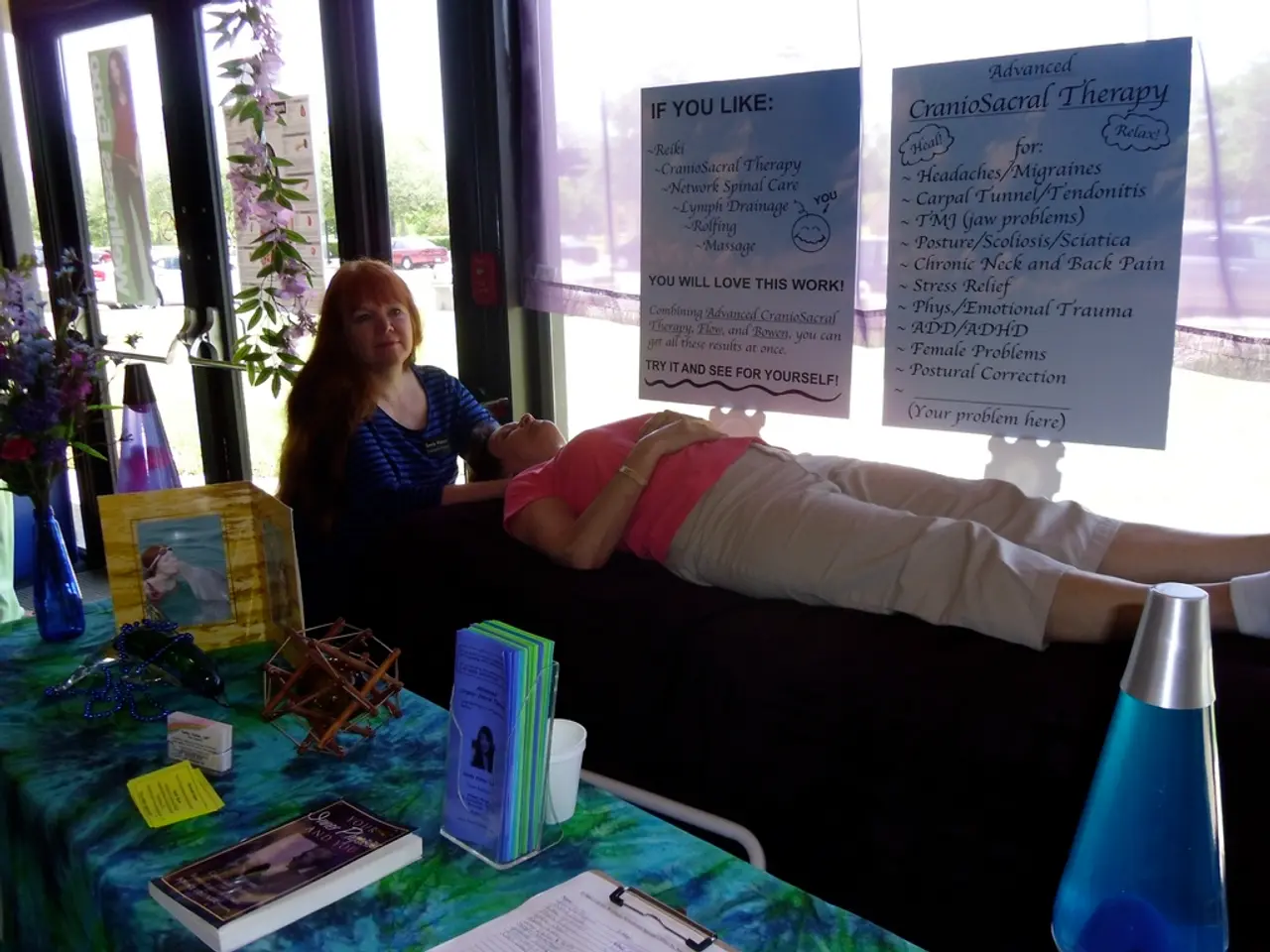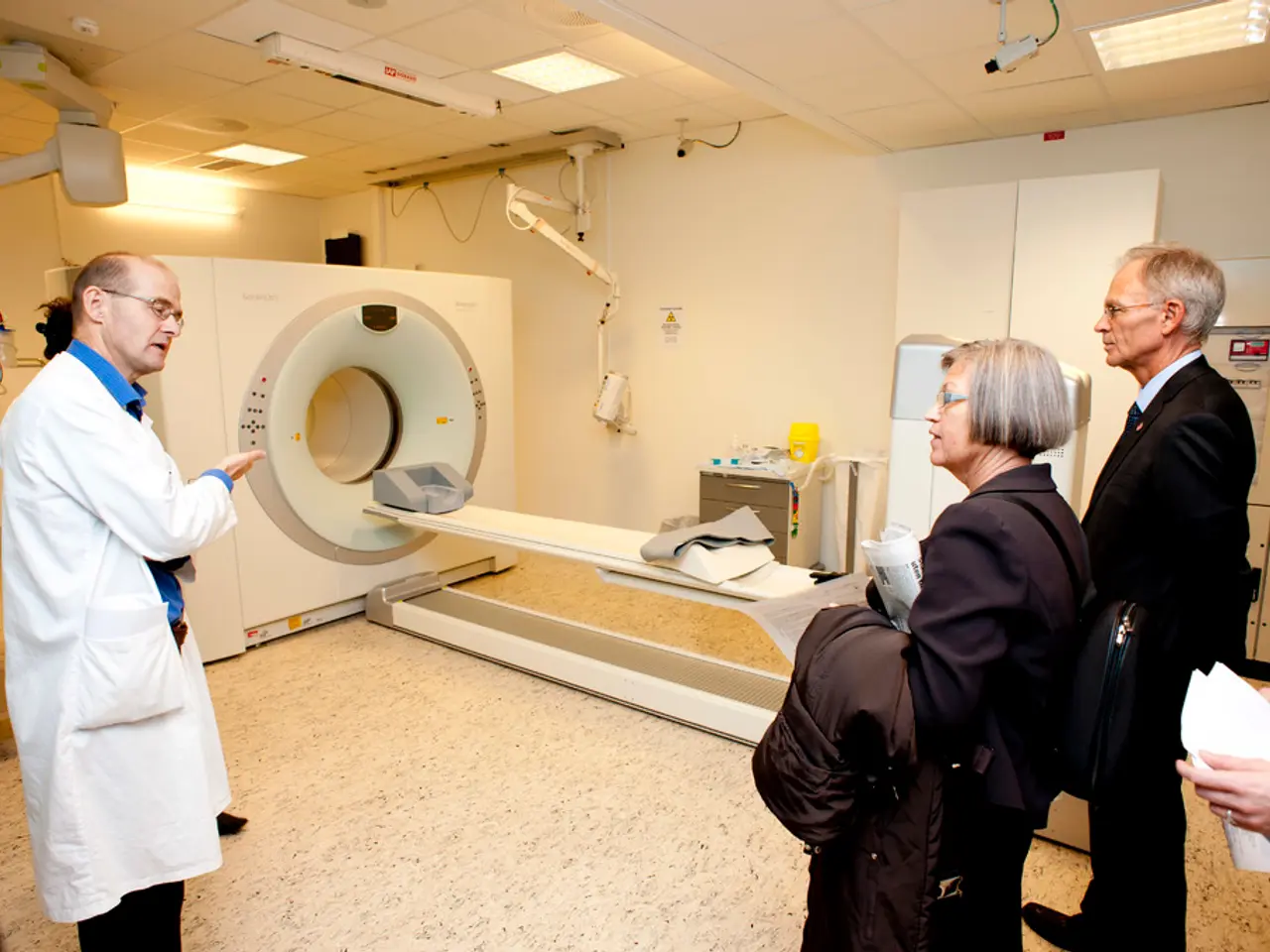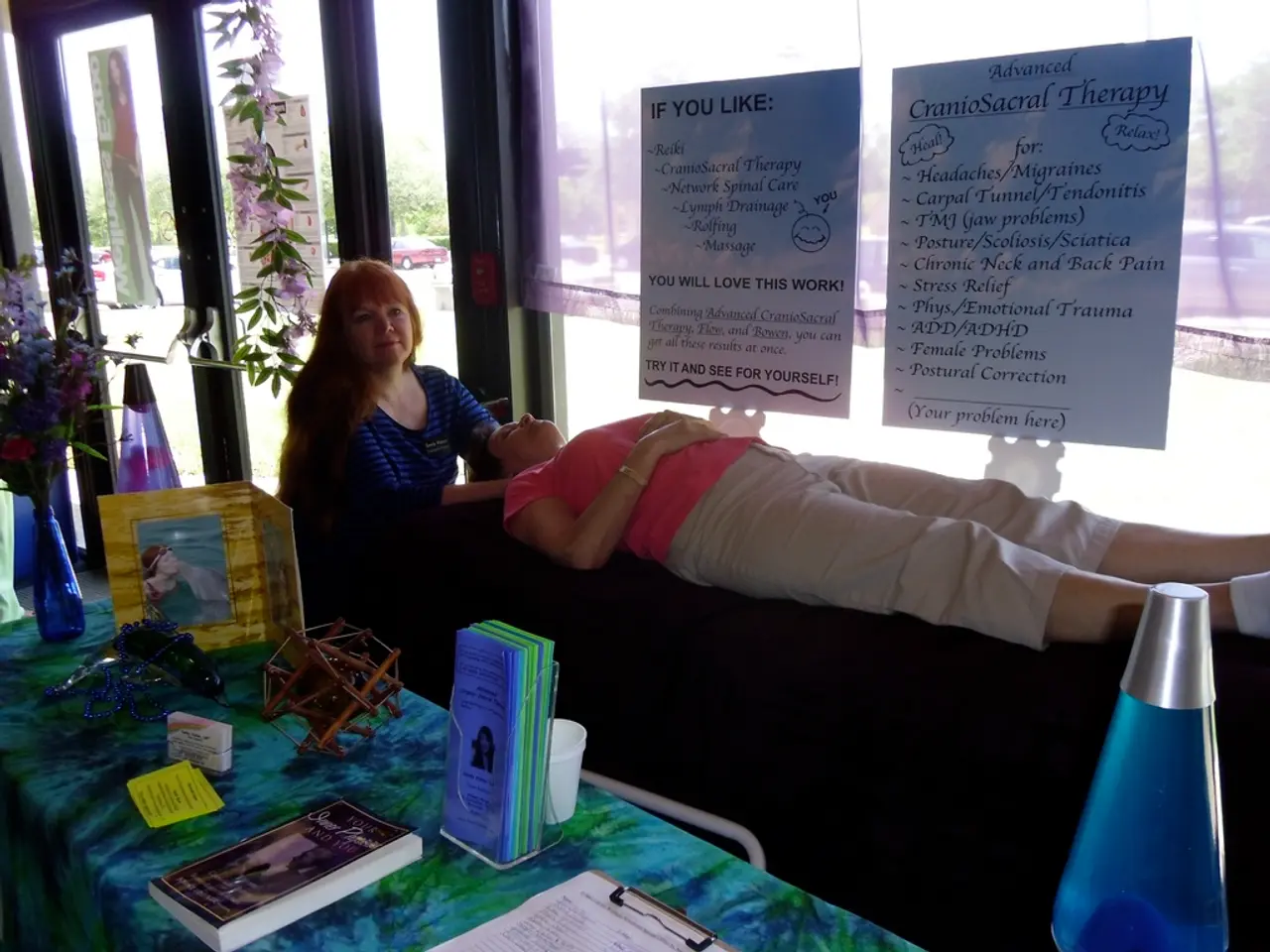Therapy Dialogues: Functions, Advantages, and Insights
======================================================================================
In the realm of mental health, talk therapy, also known as psychotherapy, stands as a powerful tool for treating a wide range of conditions and recurring stressors that interfere with daily life. This article aims to shed light on different types of talk therapy, their benefits, and their efficacy in addressing various mental health issues.
Cognitive Behavioral Therapy (CBT)
Highly effective for common conditions such as anxiety, depression, PTSD, and OCD, CBT focuses on identifying and reshaping unhelpful thought patterns and behaviors with a structured and goal-oriented approach, often short-term.
Dialectical Behavior Therapy (DBT), a specialized form of CBT, is particularly beneficial for individuals with emotion regulation difficulties, notably those with borderline personality disorder. It integrates mindfulness and skills for distress tolerance and interpersonal effectiveness.
Psychodynamic Therapy
Psychodynamic Therapy explores unconscious conflicts rooted in past experiences and is effective for deeper, long-term personality and relational issues.
Interpersonal Therapy (IPT)
IPT focuses on improving relationship and communication issues and is often used for depression related to grief, role changes, or social conflicts.
Humanistic Therapies
Humanistic Therapies, like Person-Centered Therapy, emphasize self-awareness, self-acceptance, and personal growth. They are beneficial for clients seeking a supportive, empathetic environment to explore feelings and potential, often used in a broad range of emotional difficulties.
Creative Arts Therapies
Creative Arts Therapies (e.g., Person-Centered Expressive Therapy, Poetry Therapy, Play Therapy) use nonverbal methods such as art, music, or drama to help particularly children or those who have difficulty expressing feelings verbally.
Benefits of Talk Therapy in General
Talk therapy offers numerous benefits, enhancing emotional resilience and healthier relationships, improving self-awareness, and coping strategies. It helps patients process trauma, break unhealthy habits, and reduce symptoms of many disorders including anxiety, depression, eating disorders, and self-harm tendencies.
Efficacy
The effectiveness of talk therapy depends on matching therapy type to condition and client needs. CBT and its derivatives (DBT, IPT) are among the most extensively researched and have strong evidence bases for anxiety, depression, personality disorders, and interpersonal problems. Psychodynamic and humanistic approaches are often beneficial for complex, long-term psychological issues but may require longer treatment duration. Creative therapies can facilitate expression where verbal talk therapy alone is insufficient, especially for children or trauma survivors.
In conclusion, talk therapy is a flexible and evidence-supported approach for numerous mental health conditions, with specific modalities tailored to different psychological needs and goals. Many therapies are now accessible via online platforms, increasing availability and convenience. It is essential to remember that therapists are all very different, and it is perfectly acceptable to switch therapists if one is not adequately meeting a person's needs. A healthcare professional might also be of help during the process of selecting a therapist, particularly if they diagnose a person with a mental health condition.
- Cognitive Behavioral Therapy (CBT), a goal-oriented approach, is highly effective in addressing common mental health conditions such as anxiety, depression, PTSD, and OCD, by identifying and reshaping unhelpful thought patterns and behaviors.
- Dialectical Behavior Therapy (DBT), a specialized form of CBT, is particularly beneficial for individuals with emotion regulation difficulties, like those with borderline personality disorder, as it integrates mindfulness and skills for distress tolerance and interpersonal effectiveness.
- Psychodynamic Therapy, which focuses on unconscious conflicts rooted in past experiences, is effective for deeper, long-term personality and relational issues.
- Interpersonal Therapy (IPT), which improves relationship and communication issues, is often used for depression related to grief, role changes, or social conflicts, and has a strong evidence base for its effectiveness.
Talk therapy offers numerous benefits in enhancing emotional resilience, healthier relationships, improving self-awareness, and coping strategies. Its effectiveness depends on matching therapy type to condition and client needs, with CBT, DBT, IPT, and their derivatives having strong evidence bases for anxiety, depression, personality disorders, and interpersonal problems. Creative therapies, which use nonverbal methods like art, music, or drama, can facilitate expression where verbal talk therapy alone is insufficient, especially for children or trauma survivors.




